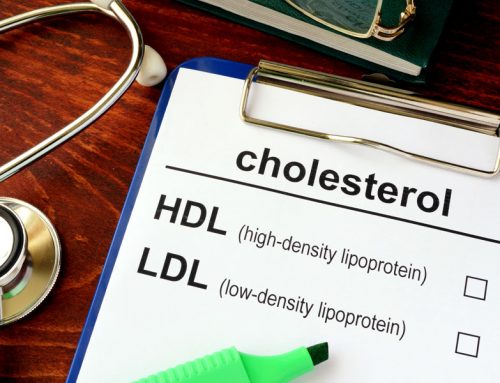The Q-SYMBIO Study
Researchers in nine countries led by the Chief Medical Doctor Svend Aage Mortensen,(1) a cardiologist in the Heart Centre of Copenhagen University Hospital, enrolled 420 patients in a randomized placebo-controlled double-blind clinical trial in which half of the patients were given a 100 mg capsule of Myoqinon Q10 (Bio-Quinone GOLD), three times daily, and half of the patients were given a placebo capsule, also three times daily.
The patients were all chronic heart failure patients classified as level III (with a marked limitation of physical activity) or level IV (with an inability to carry on any physical activity) in the New York Heart Association’s classification scheme.
The age of the patients in years ranged from 50 to 74 years. Nearly all of the of the patients in the study were receiving and continued to receive the standard heart failure medications: angiotensin-converting enzyme inhibitors or angiotensin receptor blockers and beta-blockers.
The Results of the Q-SYMBIO Clinical Trial
After 106 weeks of treatment with the Q10 formulation, researchers observed several outcomes in the Q10 treatment arm of the trial that were statistically significant.
The number of Major Adverse Cardiovascular Events was reduced by 42.3% relative to the placebo group.
The number of cardiovascular deaths during the study was lower by 43.8% as compared with the placebo group.
The all-cause mortality among the heart failure patients was seen to be 44.4% lower than in the placebo group.
Fewer heart failure patients were admitted to the hospital for treatment and care during the 106 weeks than in the placebo group, a reduction of 42.8%.
Altogether now, there have been 21 placebo-controlled trials of the efficacy of Q10 adjuvant treatment of heart failure patients, and 18 of these trials, including the Q-SYMBIO trial, have demonstrated positive effects (3,4,5). It may be that the results of the other three trials were skewed by poor patient compliance or by faulty trial design.
Dr. Mortensen has attributed the clear-cut success of the Q-SYMBIO trial to the level of the dosage (100 mg three times daily) and to the Q10 formulation used in the trial.
The Predecessor to Q-SYMBIO
The Q-SYMBIO trial results can now be combined with the earlier results of the Morisco clinical trial (2) to establish a new world-wide paradigm for the treatment of chronic heart failure, a regime that can and should include supplementation with Coenzyme Q10 as an adjuvant treatment to the standard treatment.
Morisco et al led a multi-center randomized placebo-controlled double-blind study that enrolled 641 patients in NYHA classes III and IV in a Q10 treatment group and in a placebo group (2).
The patients in the Q10 treatment arm received 2 mg per kilogram of body weight, and, as a result, they required hospitalization 37.7% less often than the placebo patients did. Additionally, the number of cases of pulmonary edema and cardiac asthma was significantly reduced in the Q10 treatment group.
Read our key article on CoQ10 as adjuvant therapy for heart failure
References:
- Mortensen SA, Rosenfeldt F, Kumar A, et al. The Effect of Coenzyme Q10 on Morbidity and Mortality in Chronic Heart Failure: Results From Q-SYMBIO: A Randomized Double-Blind Trial. JCHF. 2014;():. doi:10.1016/j.jchf.2014.06.008.
- Morisco, C., Trimarco, B., & Condorelli, M. (1993). Effect of coenzyme Q10 therapy in patients with congestive heart failure: a long-term multicenter randomized study. The Clinical Investigator, 71(8 Suppl), S134-S136.
- Soja, A., & Mortensen, S. (1997). Treatment of congestive heart failure with coenzyme Q10 illuminated by meta-analyses of clinical trials. Molecular Aspects Of Medicine, 18 SupplS159-S168.
- Sander, S., Coleman, C., Patel, A., Kluger, J., & White, C. (2006). The impact of coenzyme Q10 on systolic function in patients with chronic heart failure. Journal Of Cardiac Failure, 12(6), 464-472.
- Fotino, A., Thompson-Paul, A., & Bazzano, L. (2013). Effect of coenzyme Q₁₀ supplementation on heart failure: a meta-analysis. The American Journal Of Clinical Nutrition, 97(2), 268-275. doi:10.3945/ajcn.112.040741.










Leave A Comment